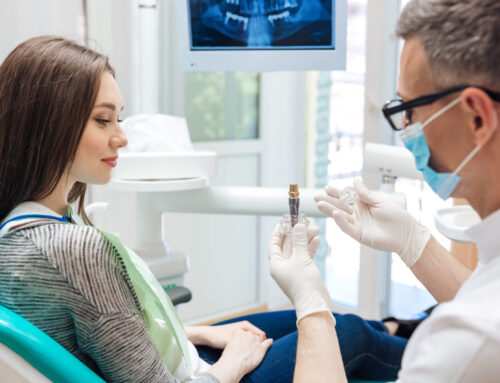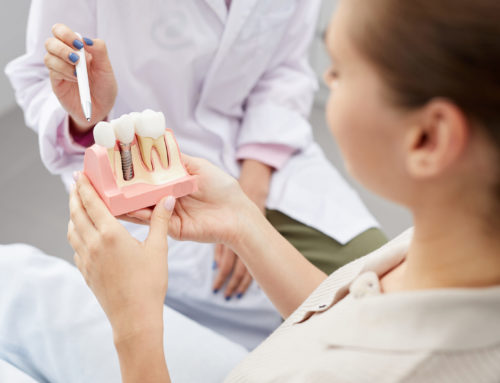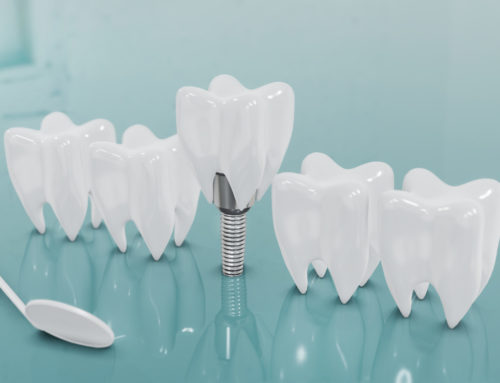When a patient has one or more missing teeth, dental implants are a great option. Implants can restore the full functionality of the mouth even for patients who have no teeth left. The following provides answers to common questions people and potential patients typically have about dental implants. Read on to learn more, and below, see how patients in Houston can gain further information from the highly-trained dental surgeons of OMSH.
What Are They?
A dental implant is a small titanium post that replaces the roots of your missing teeth. The posts are inserted into the jawbone during an in-office surgical procedure. After the posts are placed and the incisions heal, a natural-looking porcelain crown is attached. In many instances, implants must fuse with the jawbone for a few months before they’re crowned; in other cases, a patient can have temporary teeth the same day the posts are placed.
How Many Teeth Are Replaceable with Implants?
The oral and maxillofacial surgeons of OMSH can replace one tooth, multiple teeth, or all of your missing and failing teeth with dental implants. Most patients don’t need an implant for each tooth; and at the same time, there are options available, like All-on-4 implants, for patients who need a who section of teeth replaced. The great things about implants are that they offer a permanent solution to missing teeth, while also offering you a great smile that can last for many decades.
Is the Surgery Painful?
Most patients find implant surgery easy to tolerate and almost pain-free. Any post-surgical discomfort can typically be managed with OTC (over the counter) painkillers and anti-inflammatory medicines such as ibuprofen. Cold compresses can also be beneficial as your mouth needs to go through the healing process.
Are They Expensive?
In the beginning, implants can be costlier than other tooth replacement methods like bridges and dentures. However, they last much longer than these other appliances and don’t have to be replaced over time- which is where more costs come into play for other options. Dental implants offer the most effective and cost-efficient option when patients view them as an investment in their well-being, comfort, and oral health.
How Do I Care for My Implants?
Today’s high-quality implants require the same type of care as a patient’s natural teeth: daily flossing and brushing, as well as regular professional cleanings and dental checkups. Although implants never decay, the surrounding gum tissues can become infected or inflamed if the patient doesn’t practice good oral hygiene. Yet, when they’re well cared for, they never need to be replaced.
Could My Body Reject Them?
In the strictest sense, dental implants cannot be rejected; they have no DNA or living cells. The titanium making up the implants is fully biocompatible, and patient allergies are exceedingly rare. However, in very small cases, implants may fail to fully integrate into the patient’s jawbone if infection arises because of poor oral hygiene, or if they’re subjected to bite forces soon after surgery. These complications are very rare, and implants have a success rate above 95%.
Who’s a Candidate for Implants?
Most people with missing teeth are good candidates for dental implants; however, candidacy can only be determined after a full oral examination by an oral and maxillofacial surgeon. Connect with OMSH today to schedule your consultation, and start the exciting process of restoring your most perfect smile. Other benefits to having implants with OMSH is that they help restore mouth functionality, overall well-being, and help give you a big boost of self-confidence. Call us today at 832-509-4505.





